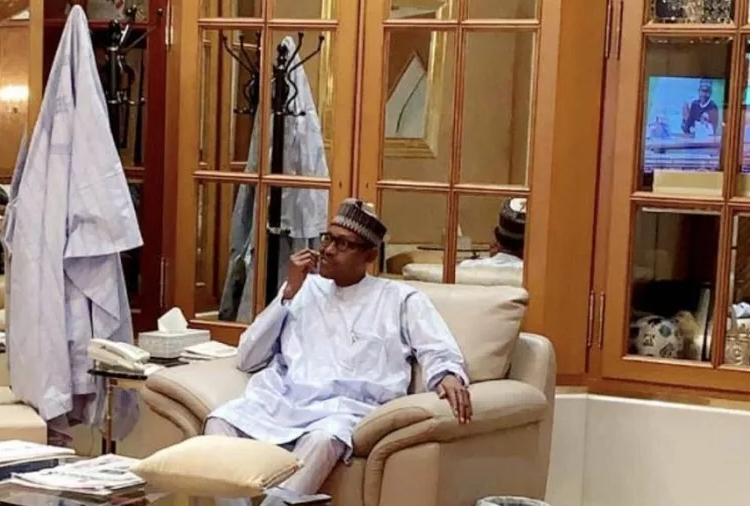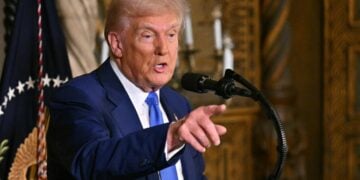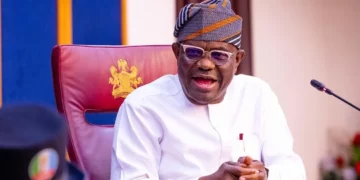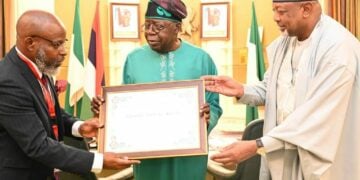Socio-Economic Rights and Accountability Project (SERAP) has urged the Federal High Court in Lagos to compel President Bola Tinubu’s government to publish spending details of the loans obtained by former presidents since 1999.
SERAP is also asking the court to order the federal government to publish the spending details of any such loans obtained by the governments of Olusegun Obasanjo, Umaru Musa Yar’Adua, Goodluck Jonathan and Muhammadu Buhari, including the interests and other payments so far made on the loans.
The civil society organisation also joined Wale Edun, the Minister of Finance and Coordinating Minister of the Economy, and the Debt Management Office (DMO) as respondents in the suit yet to be assigned to a judge.
In an affidavit attached to the suit marked FHC/L/CS/353/2024, SERAP averred that the 1999 Constitution, the Freedom of Information Act, and the country’s anti-corruption and human rights obligations rest on the principle that citizens should have access to information regarding their government’s activities.
The plaintiff also argued that by the combined reading of the provisions of the Constitution, the Freedom of Information Act 2011, the International Covenant on Civil and Political Rights, and the African Charter on Human and Peoples’ Rights, there are transparency obligations imposed on the Tinubu government to widely publish the agreements and details of the projects on which the loans were spent.
SERAP further stated that no one should be able to pull curtains of secrecy around decisions on the spending of public funds, which can be revealed without injury to the public interest, and that democracy requires accountability, and accountability requires transparency.
The plaintiff maintained that the Tinubu government should make it possible for citizens to have access to the agreements and spending details to judge whether their government is working for them or not.
SERAP also contended that the information might help to explain why, despite several billions of dollars in loans obtained by successive governments, millions of Nigerians continue to face extreme poverty and lack access to essential public goods and services.
The civil society organisation further insisted that Nigerians’ right to democratic governance allows them to appreciably influence the direction of government and have an opportunity to assess progress and assign blame.
The plaintiff also argues that government accountability to the general public is a hallmark of democratic governance, which Nigeria seeks to achieve.
The suit filed on behalf of SERAP by its lawyers Kolawole Oluwadare and Andrew Nwankwo read in part: “Publishing the loan agreements would improve public accountability in ministries, departments and agencies (MDAs).
“Nigerians are entitled to information about what their government is doing in their name. This is part of their right to information.
“Publishing the agreements and spending details would allow the public to see how and on what these governments spent the loans and foster transparency and accountability.
“Publishing the loan agreements signed by the governments of former presidents Olusegun Obasanjo, Umaru Musa Yar’Adua, Goodluck Jonathan and Muhammadu Buhari, and widely publishing the agreements would allow Nigerians to scrutinise it and to demand accountability for the spending of the loans.
“According to Nigeria’s Debt Management Office, the country’s total public domestic debt portfolio is N97.3 trillion ($108 billion). The Federal Government’s debt is N87.3 trillion ($97 billion).’’





